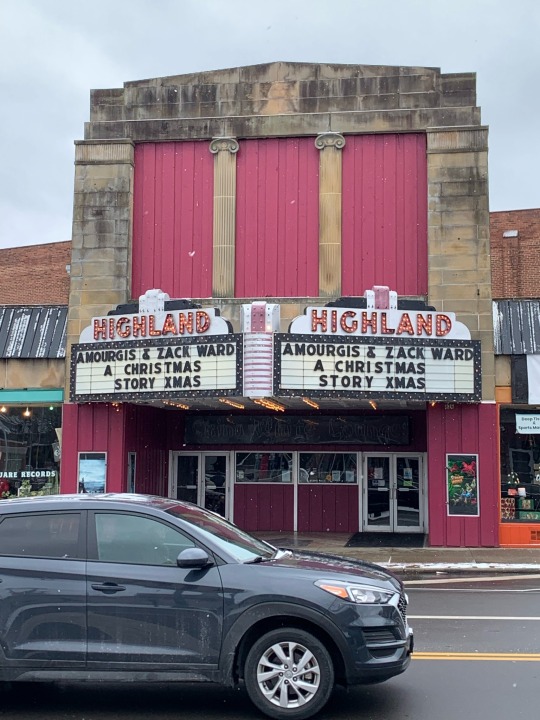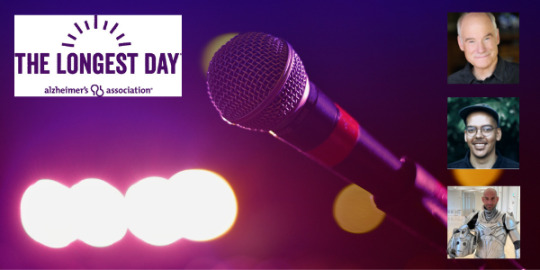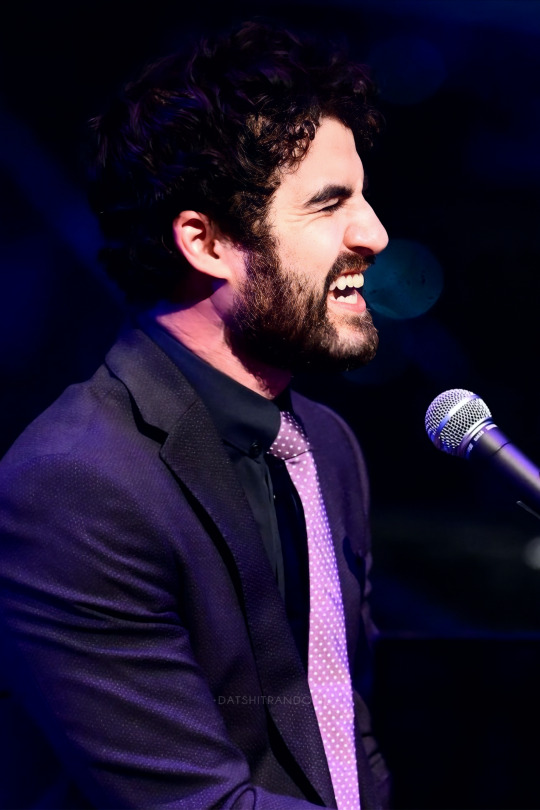#alzheimers association
Text
To all those who couldn't listen to the show (who can't): Don’t get spoiled! The video will be in a few days on Youtube
IT’S TOO INTENSE!
Don’t spoil this moment!
But give to the cause https://tiltify.com/+wes-johnsons-alzheimers-association-fundraiser/falloutforhope-wes-johnson-alz-2023
#nick valentine#fallout 4#chadfallout76podcast#alzheimer#alzheimers association#fallout voice actors
17 notes
·
View notes
Text
x x x | Alzheimer's Association Imagine Benefit (October 25, 2023)
33 notes
·
View notes
Text






Darren Criss performs onstage during the Alzheimer's Association Imagine Benefit at Jazz at Lincoln Center | October 25, 2023 in New York City | 📸 by Dave Kotinsky and Patrick McMullan | 🎥 via Anton San Diego
#just catching up#don't mind me#darren criss#alzheimer's association#alzheimer's association imagine benefit#darren x emporio armani#mancandykings#dailymenedit#malestarsedit#dailymalesource#dailymen#mensource#dailymusicians#dailymusic#musicsourcedaily#musiciansedit#popculturesource#please do not repost
17 notes
·
View notes
Text




Week before Christmas off to a great start! Spent the day with the family watching A Christmas Story Christmas in a theater & got to meet Scut Farkus himself Zack Ward! And all for a great cause for Alzheimer’s Association!
The movie itself was great too, just as good as the original and I think I like this more!
10 notes
·
View notes
Text
Solomon Carter Fuller, M.D., a Black Mental Health Pioneer
Solomon Carter Fuller, M.D., the first known Black psychiatrist in America and an early pioneer in the fight against Alzheimer's. Dr. Fuller collaborated with Dr. Alois Alzheimer, identifying the disease we now know as Alzheimer's, and helped translate much of his work from German to English.
Sources: Patch.org, American Psychiatric Association Foundation, and Melvin Sabshin, MD Library and Archives
Visit www.attawellsummer.com/forthosebefore to learn more about Black history.
Need a freelance graphic designer or illustrator? Send me an email.
#Solomon Carter Fuller#psychiatrist#medical research#Alzheimer's#Alois Alzheimer#psychiatry#Black mental health pioneers#health pioneers#mental health#American Psychiatric Association Foundation#dementia#APA#Black history#American history#Black doctors
4 notes
·
View notes
Text
Book Report: #TheLongestDay
Thanks to @teachergorman and @notapipepub team Writing Against the Dark wrote 71k+ words and exceeded our fundraising goal!
#TheLongestDay #ENDALZ #writingcommunity
This post probably should have happened yesterday, but there was absolutely no juice left in the tank to talk about anything even remotely writing related. Also, we found out we’d been exposed to COVID yesterday and Trevor tested positive, so I really viewed the day as one of rest and resetting.
Today is a day of action, I think. We’re quarantining through the first week of good weather here in…

View On WordPress
#TheLongestDay#Alzheimer&039;s Association#Authors#editing#folk horror#Not a Pipe Publishing#novellas#novels#revision#science fiction#short stories#workworkwork#writers#writing#writing community
2 notes
·
View notes
Text
The Longest Day Fundraiser – Round 2 Interview Announcements
The Longest Day Fundraiser – Round 2 Interview Announcements: Jon Davey, Dylan Valley, and Jim Meskimen
Round 2 is ready to be announced with three men all working in the film industry.
First up is a person I mentioned I was talking to in my last article. Jon Davey is an actor and filmmaker I met at the Doctor Who convention Gallifrey One. He’s a long-time creature performer who’s been working with Doctor Who since 2006. He has been in all of the iterations (Doctor Who, Torchwood, The Sarah Jane…

View On WordPress
#acting#Alzheimer&039;s Association#animation#article#audio#Doctor Who#documentary#Dylan Valley#event#film#fundraising#geek#interview#Jim Meskimen#Jon Davey#marsha morgan#podcast#television#The Longest Day#theatre#voice-over
1 note
·
View note
Text
seeing people my age talk about how scared they are of memory loss, which they only associate with old age, is so surreal to see as a 24 year old who has actively experienced memory loss for a long time now
there are causes for memory loss besides dementia and alzheimer’s, i hope y’all know that. dissociative disorders, trauma, brain injuries, thyroid problems, even just stress and lack of sleep can fuck up your ability to store, process, and access memory. and that’s just a few of the many causes i can think of off the top of my head right now.
please stop treating disabled people like some scary “other” that you might become only in the distant, decades-away future. we are your age, too. you may become one of us sooner than you know. stop acting like memory loss marks the end of a life, when so many of us have so much living left to do!
#diary#memory loss#memory disorder#dementia#alzheimers#dissociative disorder#dissociative amnesia#dissociation#dissociative identity disorder#trauma#brain injury#memory#amnesia#actually dissociative#complex dissociative disorder#osddid#osdd system#dissociative system#other specified dissociative disorder#did system
20K notes
·
View notes
Text
Global Sustainable Sport – What are the reputational risks facing the industry?
In 2023, the world faces economic, geopolitical, social and environmental crises against the backdrop of ongoing physical and mental health challenges among the general population.
In the ultra-competitive sports industry, brand reputation is of critical importance.
However, as Native American comedian Will Rogers once said: “It takes a lifetime to build a good reputation, but you can lose it in a minute.”
Reputational damage can occur for a variety of reasons in sport – from an unintended data leak and shoddy fan experience to a sportsperson doing something inexplicable on or off the pitch. But it has the potential to be devastating for a sports organisation, league, club or athlete.
Indeed, in instances where there has been reputational damage, commercial partners are usually the first to go as they strive to avoid association with a tarnished brand. This often has real consequences on the financial bottom line.
For example, Hockey Canada revealed that it had lost C$23.5m in sponsorship income last year due to a sexual assault scandal.
A decade earlier, after finally admitting to doping after years of speculation, Lance Armstrong lost eight sponsors in a single day.
For the commercial partners, such swift action makes perfect sense. Research from the Rennes School of Business found that sponsors that act quickly in the wake of a doping scandal by severing ties with the guilty party can actually emerge from the episode with their overall reputations enhanced.
However, the response is crucial for all parties that are associated with a potentially damaging incident or event.
“There is a principle in PR crisis communications that it is never the crisis that kills you, it is your response to it,” David Alexander, Founder and Managing Director of Calacus, a sports PR agency that specialises in crisis communications, tells Global Sustainable Sport.
“There is a simple formula when facing a crisis. Acknowledge what has happened, express regret or sympathy for those affected, understand why they are aggrieved in the first place, and make a commitment to address your processes to ensure that it does not happen again in future.
“It is rarely the crisis that damages a reputation, but the way it is handled. Be strong, humble and determined to fix the problem and remain transparent, telling your stakeholders of your plans and progress along the way.”
From a good governance perspective, top officials and executives within any organisation should take a leading role in setting the right example to build and safeguard reputations. However, in organisations that have evolved through a changing world for generations, this may not come naturally.
“Sports organisations, by their very nature, can struggle with progress and often have established and conservative governance executives who cannot keep up with the pace of change,” Alexander says.
“We are in an era where consumers want their sports teams or associations to stand for something positive and do good in the world, and marrying that up with the challenges of attracting suitable sponsors who may not share precisely the same value set can be difficult.”
Some reputational headwinds are unexpected and inevitable in sport. However, sometimes sports organisations take proactive strategic decisions that have clear reputational risks from the outset.
“Money talks, as well, and the increasing influence and impact of wealth from the Middle East is also creating challenges,” Alexander adds.
“We have, for instance, rainbow armbands, laces and other symbols of support for the LGBTQ+ community in various sports, despite the fact that in many countries, particularly in the Middle East, homosexuality is illegal, as just one example.
“How sports can continue to engage and align with such a wide range of diverse communities when some cultures shut them down is a challenge that they have not yet solved.”
Alexander also makes the point that “some traditional sports are struggling to retain or attract younger audiences, for instance, and if they align themselves with repressive regimes, that may deter fans from engaging as they otherwise would.”
The broader challenge is that sport is an industry in which balancing risk versus potential reward is an everyday calculation that is factored into business models, from signing players to awarding hosting rights.
Alexander warns: “If you put profits over people, particularly when the risks of going down a certain route or aligning with specific sponsors, investors or hosts is concerned, it’s a long journey to win them back.”
With this in mind, a thorough risk assessment of any strategic choices is essential, he adds.
“Having core values and ensuring that every partner and stakeholder aligns to those values, ideally as engaging and supportive of every demographic as possible, is fundamental,” Alexander says.
“There have been incidences where football clubs, for instance, have signed players who have been accused of sexual misconduct, and whether they are guilty or not, their presence alienates huge swathes of their community, from female staff and teams to families who pay to watch them and sponsors who want to create positive vibes.”
A commitment to making a positive change in advance of a collaboration being struck is also important.
“This community activity should not be profit-making, nor should it be done with any thought for the bottom line,” Alexander explains.
“Supporting those most in need, using profits or expertise to empower those in disadvantaged communities or situations has a huge impact on loyalty but it should be a benefit, not a focus. You have to do the right thing because it is the right thing, not because it makes you look good, essentially.”
To read the full article, please click HERE
#crisis pr#Issues and Crisis management#sports crisis#sustainability in sport#RFEF#Spanish football#Luis Rubiales#Alzheimer's Society#FootbalL Association
0 notes
Text
There's this commercial (for lack of better terms) that keeps playing on my local radio station… It's a commercial for the Alzheimer's Association. It starts by telling a story about this guy's mom.
This mom – who happens to be up there in years, was late to lunch because she made a wrong turn… mentioned she wasn't playing cards with her friends, anymore… and got up and asked directions to the ladies' room during lunch.
After it tells the story, it tells the listening that this son "missed three signs of Alzheimer's", then asks the listener: "Did you?"
So, according to the commercial… if your mom loses interest in hobbies, or if she overshoots her destination, or if she has to ask directions to an in-building location, then she must have Alzheimer's disease. I guess I must have Alzheimer's disease, too, since I'm easily turned around, easily bored, and always ask directions to places, myself, huh? But what if…?
She made a mistake?
She just got bored playing cards?
She wasn't familiar with the layout of the restaurant?
This commercial sucks. This is not a good way to raise awareness for Alzheimer's disease. This is just stupid.
#random thoughts#Alzheimer's disease#Alzheimer's#Alzheimer's Association#commercials#radio commercials#stupid
0 notes
Text






Darren Criss performs onstage during the Alzheimer's Association Imagine Benefit at Jazz at Lincoln Center | October 25, 2023 in New York City | 📸 by Dave Kotinsky
#don't mind me#im just catching up#darren criss#alzheimer's association#alzheimer's association imagine benefit#darren x emporio armani#💜#long post#?#pretty eyes#pretty side profile#dailymenedit#malestarsedit#mancandykings#dailymalesource#dailymen#mensource#dailymusicians#dailymusic#musicsourcedaily#musiciansedit#popculturesource#please do not repost
13 notes
·
View notes
Text
Help Evaluate a New Education Program With The Alzheimer's Association
Hello! The Alzheimer’s Association is seeking informal (non-paid) caregivers of people living with dementia to help evaluate a new education pilot program. Being a caregiver for someone with dementia can be a challenging and often isolating experience. Having access to educational resources and support can be incredibly valuable.
The Empowered Caregiver Program Pilot and Evaluation allows…

View On WordPress
0 notes
Text
From the earliest days of the COVID-19 pandemic, scientists have raised concerns about the potential for long-term health problems linked to SARS-CoV-2 and warned repeated infections are likely to increase the risk.
An association between COVID and cardiovascular disease emerged quickly.
And now — almost exactly four years since the first case was discovered in Wuhan — a growing body of scientific research is cautiously linking the inflammation caused by a COVID infection to diseases like Alzheimer's and Parkinson's as well as autoimmune conditions from bowel disease to rheumatoid arthritis.
The virus has even been suggested to impact some pregnant women, associated with double the risk of premature delivery.
As the eighth COVID wave hits Australia, experts are taking notice.
...
When the first wave of COVID patients began reporting loss of smell and taste, Barnham's radar went up.
"Any time you see olfactory impairment it tells you that there's going to be neurological impact," he says. "Loss of smell is a cardinal, pre-clinical symptom of Parkinson's disease and it's been implicated in Alzheimer's disease as well."
The fact that COVID patients reported loss of smell not only during the active phase of the disease, but as a persistent symptom, suggested to Barnham that longer-term health consequences were likely. Loss of smell is associated with loss of brain volume.
3K notes
·
View notes
Text
Hey! So I did a totally wild thing today and joined a team of writers to fundraise for Alzheimer's research and care as part of the Alzheimer's Association's #TheLongestDay.
Basically, we wrote from sunup to sundown (15+ hours!) to raise money for a great cause.
We are SO CLOSE to making our goal this year, so please consider donating (any amount you'd like).
Our team wrote over 71k words today, and I personally wrote 12,798 words!
Thank you for reading and I hope you have a lovely Summer Solstice 😌
#the longest day#alzheimer's care#Alzheimer's Association#writing life#writing for a cause#all the words
4 notes
·
View notes
Text
Podcasting for The Longest Day Fundraiser for Alzheimer's
Podcasting for The Longest Day Fundraiser for Alzheimer’s
I grew up in a small town. When I went to college, I intentionally chose a smaller college because I knew going somewhere too big would be overwhelming.
I went to Park College (now Park University). I had done a little bit of theatre in high school, but knew it wasn’t something I wanted to pursue as a profession, but still wanted to participate. Thankfully, Park had just a theatre minor, and I…

View On WordPress
1 note
·
View note
Text
In 2019, the main lobbying group for for-profit nursing homes, the American Health Care Association, published a brochure titled “Nursing Homes: Times have changed.”
“Nursing homes have replaced restraints and antipsychotic medications with robust activity programs, religious services, social workers and resident councils so that residents can be mentally, physically and socially engaged,” the colorful two-page leaflet boasted.
Last year, though, the industry teamed up with drug companies and others to push Congress and federal regulators to broaden the list of conditions under which antipsychotics don’t need to be publicly disclosed.
“There is specific and compelling evidence that psychotropics are underutilized in treating dementia and it is time for C.M.S. to re-evaluate its regulations,” wrote Jim Scott, the chairman of the Alliance for Aging Research, which is coordinating the campaign.
The lobbying was financed by drug companies including Avanir Pharmaceuticals and Acadia Pharmaceuticals. Both have tried — and so far failed — to get their drugs approved for treating patients with dementia. (In 2019, Avanir agreed to pay $108 million to settle charges that it had inappropriately marketed its drug for use in dementia patients in nursing homes.)
— Phony Diagnoses Hide High Rates of Drugging at Nursing Homes
#katie thomas#robert gebeloff#jessica silver-greenberg#phony diagnoses hide high rates of drugging at nursing homes#current events#caretaking#elder care#elder neglect#healthcare#medicine#pharmacology#dementia#alzheimer's disease#nursing#capitalism#usa#american health care association#alliance for aging research#avanir pharmaceuticals#acadia pharmaceuticals
0 notes